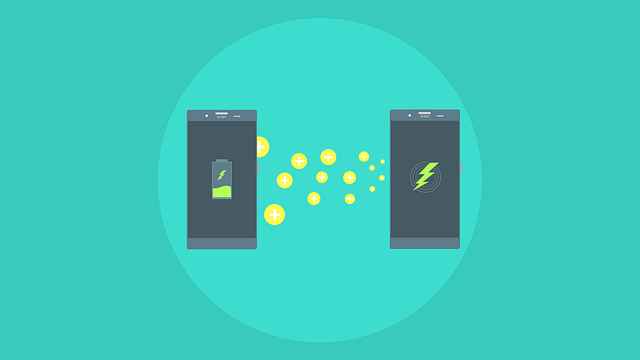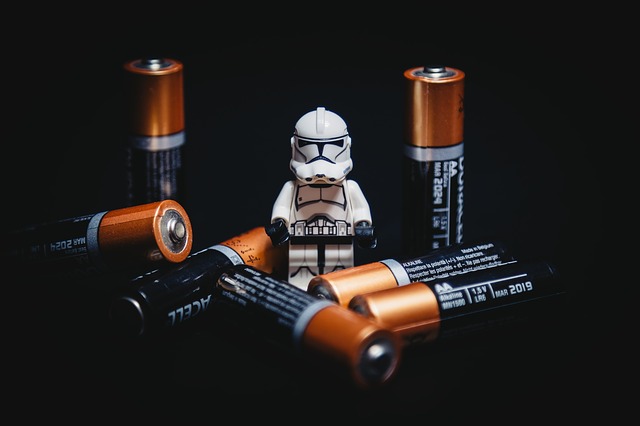Li Ion Mobile Battery-What You Tend to Use Day and Night
Sep 06, 2019 Pageview:850
Lithium-ion batteries have become quite common in the past few years. Most electronic devices, including mobile phones, are powered by these cells. This is because they have a lot to offer and prove to be highly beneficial compared to other alternatives.
However, this does not imply that lithium-ion mobile batteries are without limitations. Let us shed some light on both the benefits these cells offer and the disadvantages that you might find in them.
Advantages of Lithium-ion Battery in Mobiles
There are a lot of factors that give lithium-ion batteries an edge.
For one thing, these cells have a high energy density. Mobile phones have to operate for longer durations between charges and also consume more power. Thus, it becomes vital that the batteries used to power mobile phones have a high energy density. Therefore, lithium-ion cells prove to be a better option for mobiles owing to their high energy density.
Lithium-ion cells have a low self-discharge rate. Most rechargeable batteries tend to pose problems when it comes to discharging rate. Thus, lithium-ion cells manage to stand out in this regard. The discharge rate of these cells is typically 5% in the first four hours of being charged, following which it falls to nearly 1-2% monthly.
A significant advantage of the lithium-ion battery is that it does not require a lot of maintenance for optimal performance. These cells do not have any memory effect and thus require minimal maintenance.
It is apparent that a lot of features of the lithium-ion batteries make them suitable for mobile phones. They are capable of ensuring that your cell phones provide you with optimal performance for a long time.
The Limitations of Lithium-ion Batteries
There are certain cons to these batteries that you need to be aware of as well. Firstly, these cells are not robust enough compared to other rechargeable technologies. They need to be protected from overcharge and discharge. Furthermore, it is also crucial that the safe limits of current are maintained in them.
The thing is, lithium-ion mobile batteries need to be provided with protection circuitry to ensure that they operate safely. Once the battery is incorporated with the circuitry, they can be used safely wherein even if you leave the battery on charge; the supply is cut by the charger once it is charged fully.
Ageing is another problem that lithium-ion battery has. It is time-dependent. The lifespan of the battery is also influenced by its manufacturing date. Furthermore, the number of charges and discharge cycles that the battery goes through also decided the duration that it would last. Usually, these batteries last for 500 to 1000 charge-discharge cycles following which their capacity is reduced. The batteries need to be replaced after some time. This can be problematic for the phone since it is not always easy to find a battery which is compatible with your particular model.
Transportation is a significant problem with lithium-ion cells. A lot of airlines have limitations with regards to the number of lithium-ion batteries that can be taken by a passenger. You will also need to endure that your phone is well-protected against the risk of short-circuiting. Therefore, your phone needs to be kept in protective cover when you travel.
Lithium-ion batteries are quite costly. They cost significantly more compared to the other battery options. Therefore, they also contribute to the increasing prices of mobile phones.
Lithium batteries are still in their early stages of development m there is a lot that can be improved in these cells to make them more functional and versatile.
How to Increase the Longevity of Lithium-ion Mobile Batteries
Everyone would want to make sure that their mobile phones function optimally for a long time. Conserving battery is a vital part of this endeavor. There are certain steps you can take to make sure that the battery in your phone lasts for a long time.
It is crucial that the battery is kept at room temperature within the range of 20 to 25 degrees. It can be quite dangerous if your battery is fully charged and is exposed to high temperature. Therefore, make sure that the battery of your mobile phone is not left in the car when the weather is hot. Heat reduces the lifespan of lithium-ion batteries significantly.
Instead of keeping a spare lithium-ion battery for your mobile phone, you should endeavor to retain the life of your existing one. You need to keep in mind that the cells are ageing. Therefore, they would lose their power even if left unused. Carrying a spare might not really help you in the long run.
Lithium-ion cells are devoid of charge memory. Therefore, they do not require a deep discharge. It is advisable that the battery uses partial-discharge cycles. This will make sure that your battery lasts for a longer duration. However, there is one point to remember. As per experts, after 30 charges, the battery should be allowed to discharge almost completely. Partial discharge continuously leads to digital memory which decreases the accuracy of the power gauged by the device. Therefore, it might be a good idea to let discharging be done to the cut-off point before you recharge the device.
It is advisable to ensure that your lithium-ion battery in the phone is not discharged completely. When a lithium-ion battery is discharged below 2.5 volts per cell, it leads to the opening of the safety circuit that is built in the battery. This causes the battery to appear dead and renders the original charger useless. Furthermore, you should not recharge a deeply discharged battery if it has been stored in this condition for many months.
Using the right charger to charge your lithium-ion mobile battery is quite essential. If you wish to make sure that your phone retains its battery for a long time, you will need to take proper care of it. Lithium-ion batteries are on the whole quite safe. However, their safety and functionality are influenced by a lot of external factors. Therefore, make sure that you take the required measures for protecting the battery of your mobile phone.
- Prev Article: Li Ion Computer Battery-What You Use Most Often
- Next Article: Lithium Ion Battery Degradation Mechanisms-Science Magic
Leave Message
Hottest Categories
-
Hottest Industry News
-
Latest Industry News











